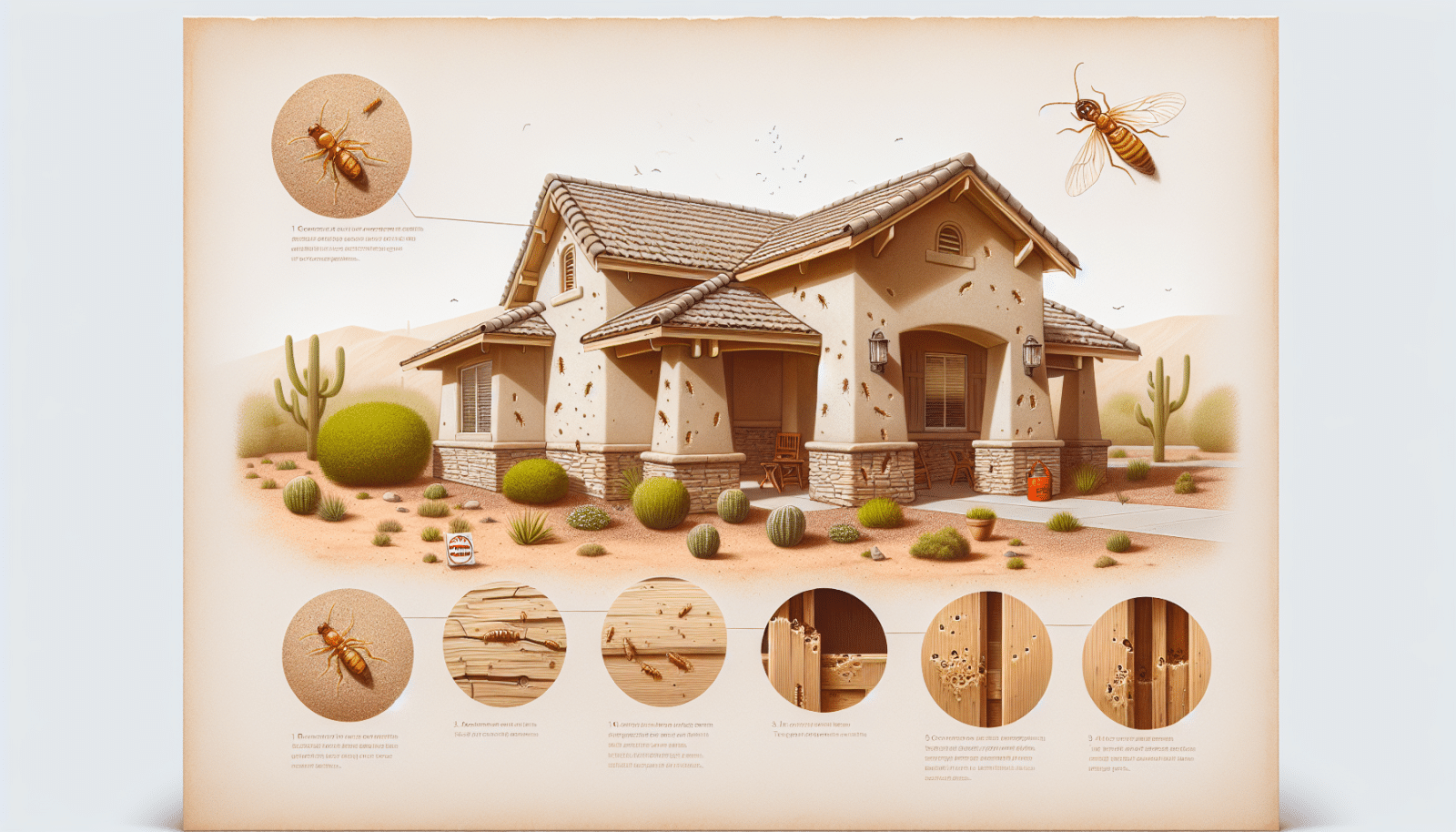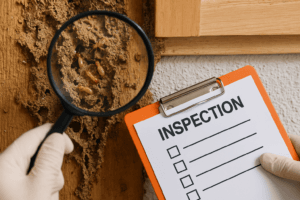Termite infestation is a nightmare for any homeowner. At Arizona Termite Control, we understand the stress and damage these Pests can cause. This blog post is designed to help you identify the early signs of termite infestation so you can act swiftly to mitigate damage. Knowledge is power, and we’re here to empower you with the information you need to protect your home.
Contents
Unmistakable Mud Tubes
One of the most telling signs of a termite invasion is the presence of mud tubes. These pencil-sized paths are constructed by termites to help them travel from the soil to your home’s wooden structures without being exposed to the open air. Finding these near your home’s foundation or along exterior walls warrants immediate attention.
Mud tubes are a termite’s highway to your home’s structure, acting as a protective tunnel for these pests to move freely and undetected. Don’t ignore these gritty pathways; instead, view them as a sign to call in the professionals.
Unusual Sounds Within the Walls
Have you ever leaned against the wall and heard a faint clicking or munching sound? That’s not your house settling; it could be termites at work. Worker termites are noisy eaters; their constant chewing can be heard if you listen closely.
This symphony of destruction is quietly played behind your walls and is a definite sign that termites may be feasting on your home. It’s a red flag that warrants an immediate inspection to prevent further damage.
Doors and Windows That Stick
Struggling to open a window or a door that used to work fine can be frustrating. While it’s easy to blame the Arizona heat for warping wood, termite damage could also be the culprit. As termites devour wood, they create moisture, causing wood to warp and making it difficult to open doors and windows.
This sign is often overlooked, simply put down to aging or weather conditions. However, recognizing it as a potential termite alert can save you from extensive and expensive damage in the long run.
Discarded Wings
Following a termite swarm, it’s not uncommon to find discarded wings near windowsills, doors, or other entry points. Swarmers lose their wings after finding a new place to start a colony, which might sadly be within the walls of your home.
Finding such wings can be unsettling, but it’s a strong indicator of a termite infestation nearby. This evidence is a call to action to investigate further and protect your home from these hidden invaders.
Frass – Termite Droppings
Termites are tidy creatures; they like to keep their eat-and-live quarters clean by pushing out their droppings. Finding small, dark marks or a powder-like substance near your home’s walls is a sign of Drywood termite infestation. This termite feces, known as frass, indicates active termite presence.
While finding frass might not be a pleasant discovery, it’s an unmistakable sign that cannot be ignored. If you notice these tiny, dark droppings in your home, it’s time to reach out for a professional inspection.
Hollow-Sounding Wood
When termites consume wood, they leave behind a thin veneer of timber or paint. As a result, when you tap on areas where termites have been feasting, the wood sounds hollow or papery. This sound is a distress signal from your home, indicating that its structural integrity might be compromised.
Performing regular checks around your home, especially in areas that are prone to moisture, can help catch this sign early. A simple knock on your walls can be the difference between catching an infestation early and uncovering a disastrous termite feast.
Cracks in the Paint
While not every crack indicates termite activity, it’s a symptom that shouldn’t be ignored. Termites can cause paint to crack and peel as they bore through the wood underneath, creating irregular patterns in the process.
These cracks are more than just a cosmetic issue; they’re potentially a window into the hidden world of termites living in your walls. It’s essential to monitor and investigate any unexplained changes to your home’s paint or plaster.
Tight-Fitting or Hard-to-Open Doors
Similar to windows and doors that stick, if your doors become harder to open or fit too tightly, it could be a sign of termite damage. The moisture termites introduce makes wood swell, further reinforcing this common but often overlooked indication of an infestation.
Before blaming humidity or faulty installation, consider a Termite Inspection to rule out an unseen invasion that could be impacting the functionality of your doors and windows.
Visible Termite Damage
If you’re seeing damage that looks like water damage on your wooden structures, you might be observing termite damage. This can manifest as buckling wood, swollen floors and ceilings, and areas that appear to be suffering from slight water damage.
Visible damage is usually a sign of a long-term infestation, where termites have been allowed to dine undeterred for a prolonged period. At this stage, professional help is not just recommended; it’s necessary to salvage your home’s integrity.
Important Points to Remember About Termite Detection
- Regular Inspections: Regularly inspect your home for signs of termite activity. This proactive approach can save you a lot of hassle and money in the long run.
- Professional Help: At the first sign of termites, seek professional assistance. DIY termite control methods are often ineffective against an established infestation.
- Maintain Your Property: Keep your property free from debris and moisture to make it less inviting to termites.
- Early Detection: The earlier you detect and address a termite problem, the less damage and expense you’ll have to deal with.
- Preventive Measures: Invest in termite preventive measures, such as barrier treatments, to protect your home before an infestation happens.
At Arizona Termite Control, we’re committed to helping you protect your home from the destructive force of termites. If you suspect your home might be hosting these unwanted guests, don’t hesitate to reach out to us by phone at 480-660-3093 or Request a Free Inspection. Early detection and professional intervention are key to preserving your home’s health and safety.




